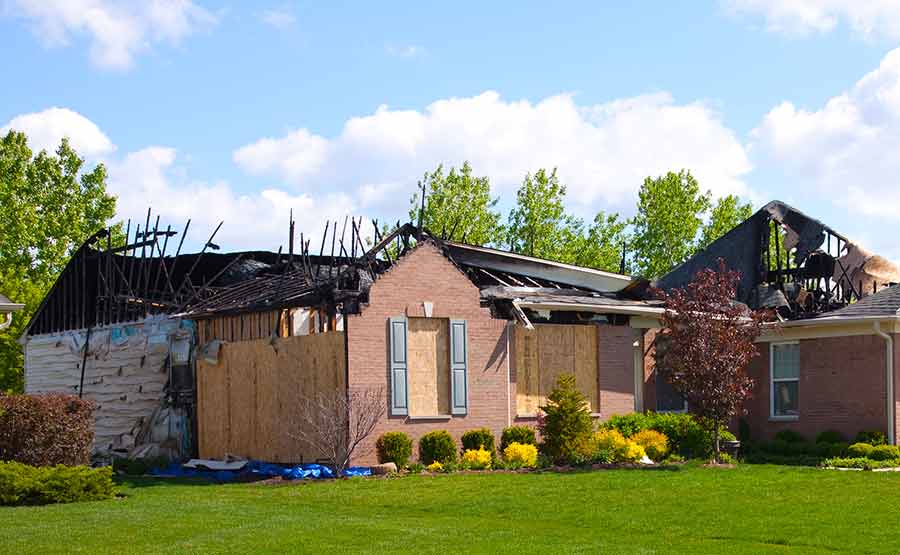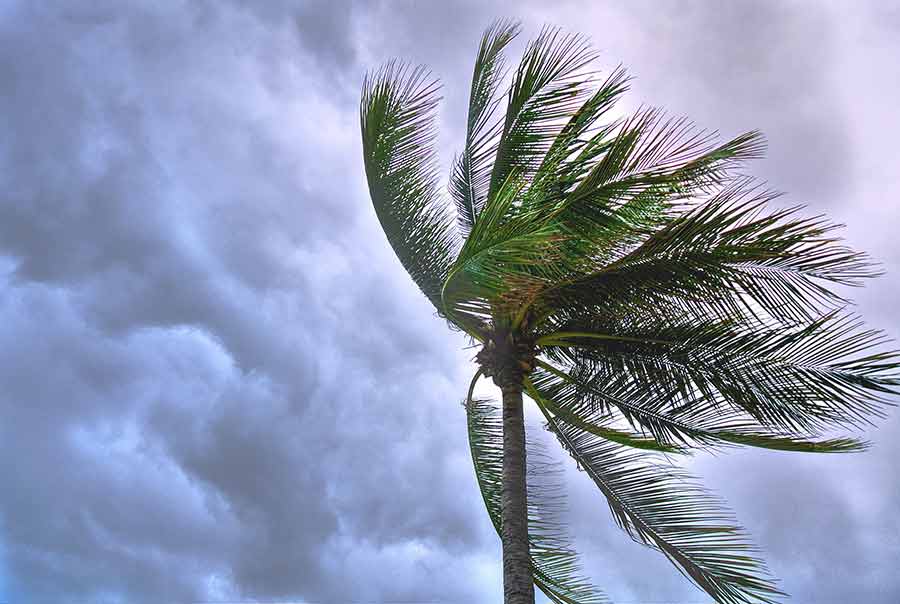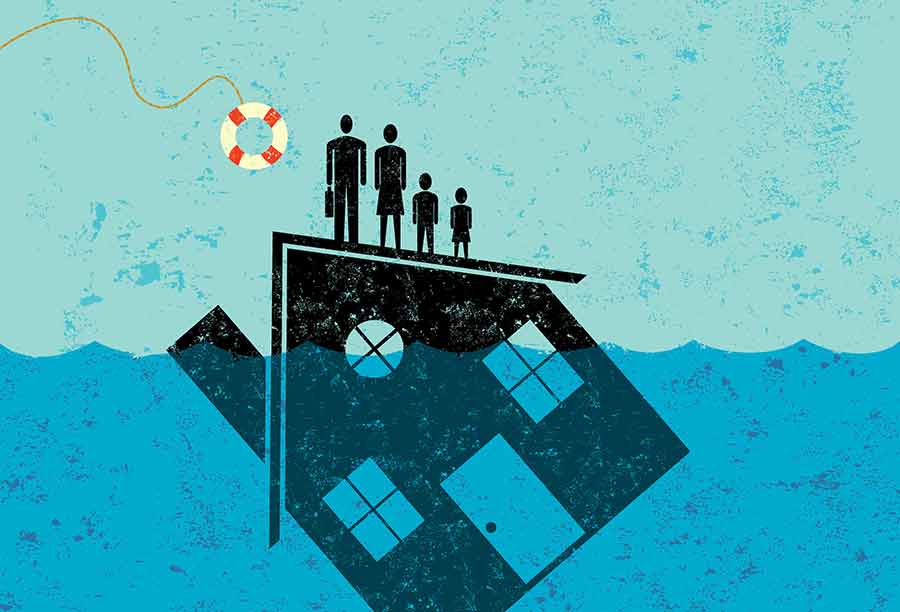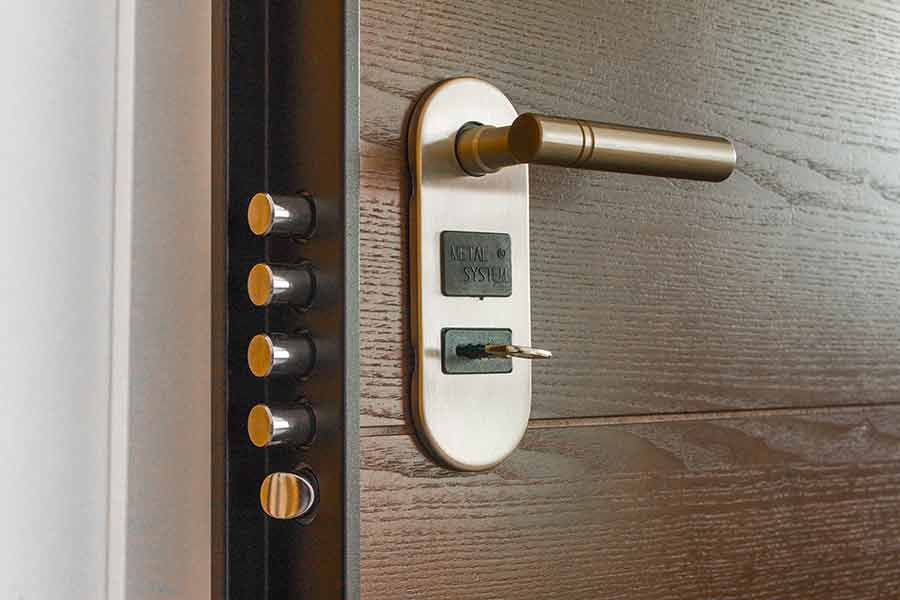Written by Andy Gurczak
September 27, 2021
As a responsible homeowner, you probably try your hardest to keep your home in good order. But unfortunately, things can sometimes go wrong. For instance, a major storm could roll through and destroy your roof, or a wildfire could burn down your new home addition. These are just a few of the situations that might lead to a home insurance claim. However, some insurance claim causes are more common than others. In this article, we have compiled a list of some of the most common home insurance claims so you can proactively protect your property.
So, What Are the Most Common Home Insurance Claims?
First, weather incidents account for more than half of all homeowners insurance claims. Weather can cause a wide range of damage, such as wind damage, frozen pipes, ice dams, roof bursting and leaks.
Meanwhile, fire-related claims are the most expensive. Whichever the case, the most common home insurance claims typically fall into one of the following categories. We’ll go into detail later on throughout this article.
- Exterior wind damage
- Non-weather-related water damage.
- Hail.
- Weather-related water damage.
- Theft.
- Other
Regional Differences
Nevertheless, the leading cause of claims differs depending on where customers live. For example, in the Northeast, the wind is the most common cause of claims. In addition, snow and ice roof damage was also a common claim throughout the region. Moreover, fire is the costliest source of claims for homeowners in this area.
In the South, wind is the most common cause of home claims, and hail is the most expensive. Meanwhile, in the West, wind and hail are the most common reason for a homeowners insurance claim. It is also the costliest damage. Midwestern homeowners also saw repeated problems caused by sewer or sump pump backups.
Most Common Home Insurance Claims
Most Common Home Insurance Claims: Wind and Hail Damage
Wind
As mentioned before, wind damage is one of the most common causes of home insurance claims. Fortunately, standard dwelling insurance covers wind claims. And suppose you have to temporarily move out. In that case, your Additional Living Expenses clause will provide reimbursement for hotel, transportation, and food costs.
However, wind damage that is caused by a hurricane or windstorm is slightly different. In states where tropical storms are common, many insurance companies have a windstorm deductible.
Hail
When it comes to hail damage, claims cost are covered by standard homeowners insurance, regardless of what type of policy you have. To illustrate, the terms and condition of your standard homeowners insurance would cover personal property destroyed by a hail storm.
Unfortunately, there aren’t many ways to protect your house from a hail storm other than choosing roofing materials that are more resilient to hail. But if you know that a storm is coming, it’s essential to take precautions.
For instance, ensure you store your vehicles into a garage or carport, tie down any loose items outside, and store easy-to-move items inside. Also, before the storm hits, be sure to take lots of pictures of your roof and home exterior. This way, you can establish its condition before any hail loss.
Despite wind and hail accounting for more than a third of all homeowners insurance claims, they’re not the most expensive. So at least you can have some peace of mind when it comes to this type of damage.
Most Common Home Insurance Claims: Fire and Lightning Damage
Damage from fire and lightning ranks second at the most common home insurance claims. But unfortunately, they account for the most expensive claims, according to the Insurance Information Institute.
Fires are a real threat to millions of homes, and a single fire could quickly destroy your entire house and the belongings inside. Therefore, it’s very important to make sure you have the right type of coverage. For example, you could ensure you have the correct replacement cost on your home so you can cover the full cost of a rebuild if you had to.
With this in mind, remember your replacement cost is not always the equivalent of your home’s purchase price or what it’s worth. Furthermore, ensure that your contents coverage is accurate by using a home inventory that indicates your personal items’ worth.
Standard homeowners insurance was originally designed to protect against fires, so the good news is that coverage for fire claims is easy to find.
Most Common Home Insurance Claims: Water Damage
Water damage is another commonly occurring and costly claim. And not to mention there are tons of ways to end up with it. For example, water damage can result from rain or snowmelt, leaking or burst pipes, overflowing sinks, toilets, or bathtubs, burst appliances like dishwashers or washing machines, and leaking roofs.
Unfortunately, insurance only covers water damage if something in your home is responsible for the damage. Therefore, this means that standard home insurance does not cover water damage from floods. In fact, most insurance policies never cover natural flooding. In order to be covered for natural flooding, you must buy a flood policy from the National Flood Insurance Program.
Most Common Home Insurance Claims: Break-ins and Theft
Theft and break-ins account for six percent of insurance claims. However, the average cost of these claims isn’t too high. And most standard home insurance policies cover theft claims. Of course, as long as it wasn’t due to negligence, like leaving the front door unlocked.
Most burglars take personal items, which your property coverage can replace. If a thief breaks into your home and causes damage in the process, like a broken window, your dwelling insurance will cover the cost of repairs.
If you’d like to reduce your risk of theft even further, consider installing a home security system. Some insurers even offer premium discounts for doing this!
Most Common Home Insurance Claims: Liability
Although liability is on this list, it is still the rarest of common home insurance claims. Regardless, liability claims tend to be very expensive. As a refresher, liability refers to your duty toward other people.
So if a guest suffers bodily injury or has their property damaged while visiting your home, you may have a liability insurance claim. Thankfully, most homeowners insurance policies offer liability protection.
Mitigate Your Risk to Avoid Any of These Most Most Common Insurance Claims
The best way to avoid filing any of these common claims is to reduce risks. In fact, a lot of insurance companies offer lower premiums for responsible homeowners. Risk mitigation might involve:
- Having a smoke alarm with working batteries.
- Having a fire extinguisher.
- Installing a home security system.
- Maintaining plumbing and sprinkler systems.
- Using hurricane-proof doors and windows if you live in a high-risk weather area.
Best way to beat the insurance company is to hire AllCity Adjusting
At AllCity Adjusting we help residential and commercial clients alike get the claims support they need. Moreover, we have over 50 years of combined experience helping get our clients the max settlement time and time again. If your claim has been low balled or denied entirely we can help increase your maximum settlement. Call us today for a FREE consultation. Experience the AllCity difference.
Real Support When You Need It!
Related Articles
7 Red Flags That Indicate You Need to Hire a Public Adjuster
If you own property, managing roofing insurance claims might seem tough. Knowing how to quickly deal with roof damage insurance claims from water, weather, fire, or unexpected events is helpful. In this guide, we’ll share useful tips to help you understand and work through roofing insurance claims more easily, aiming for a quicker solution.
Navigating Fire Damage Claims: What Every Property Owner Should Know
If you own property, managing roofing insurance claims might seem tough. Knowing how to quickly deal with roof damage insurance claims from water, weather, fire, or unexpected events is helpful. In this guide, we’ll share useful tips to help you understand and work through roofing insurance claims more easily, aiming for a quicker solution.
The Role of a Public Adjuster in Water Damage Claims
If you own property, managing roofing insurance claims might seem tough. Knowing how to quickly deal with roof damage insurance claims from water, weather, fire, or unexpected events is helpful. In this guide, we’ll share useful tips to help you understand and work through roofing insurance claims more easily, aiming for a quicker solution.
Understanding Water Damage Claims: A Comprehensive Guide for Homeowners
If you own property, managing roofing insurance claims might seem tough. Knowing how to quickly deal with roof damage insurance claims from water, weather, fire, or unexpected events is helpful. In this guide, we’ll share useful tips to help you understand and work through roofing insurance claims more easily, aiming for a quicker solution.
Essential Traits and Skills for a Successful Public Adjuster
If you own property, managing roofing insurance claims might seem tough. Knowing how to quickly deal with roof damage insurance claims from water, weather, fire, or unexpected events is helpful. In this guide, we’ll share useful tips to help you understand and work through roofing insurance claims more easily, aiming for a quicker solution.
Tips Expedite the Process :Commercial Roofing Insurance Claims
If you own property, managing roofing insurance claims might seem tough. Knowing how to quickly deal with roof damage insurance claims from water, weather, fire, or unexpected events is helpful. In this guide, we’ll share useful tips to help you understand and work through roofing insurance claims more easily, aiming for a quicker solution.
Stay Up to Date With The Latest News & Updates
Don't Wait - Get More
Get a free 1 hour consultation on your next call. So call today and challenge the insurance company narrative on your policy claim. We can help you with all your public adjuster claims support. Let us help you get more.
Join Our Newsletter
Do you want to learn more about public adjusting. In this newsletter we create helpful tips and hints and you will receive notifications when we post new articles.
Follow Us
Follow us on the following social networks.








Recent Comments